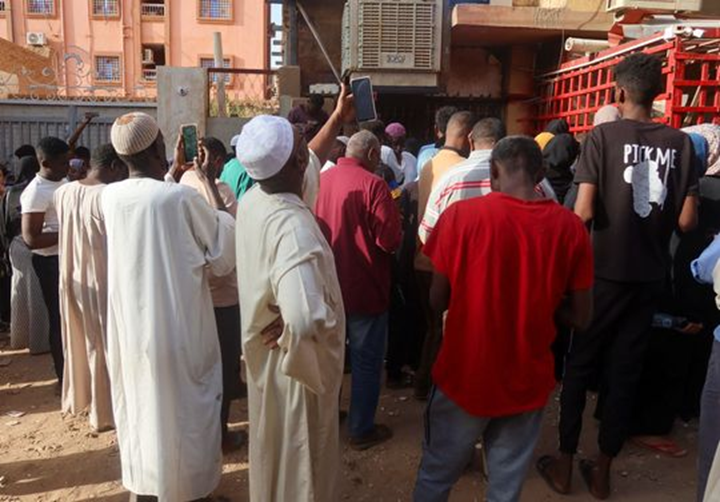Illegal use of the system forced the company to stop service in some countries.
SpaceX has launched a crackdown on the illegal use of the Starlink satellite system in countries where the service has not received official approval.
According to the Wall Street Journal, in recent days, users in Sudan, Zimbabwe and South Africa have received notifications about the imminent termination of service, which was a response to the magazine's investigation that revealed a large shadow network for distributing Starlink satellite kits. It is noted that using the service outside the official registration zones is contrary to the company's terms and conditions.
The Starlink controversy became particularly acute after it became clear that even police units in Sudan accused of human rights violations were accessing the Internet through the black market.
Starlink uses the world's largest constellation of low-Earth-orbiting satellites to provide Internet access in remote and rural areas. Since the launch of the first satellites in 2019, the company has been actively seeking regulatory approvals from various countries. By the end of March 2024, Starlink services were allowed in 72 countries. However, the service remains unavailable in a number of countries, including India, most of Africa, Russia, and China.
However, thousands of users around the world have found ways to circumvent local restrictions, usually by purchasing Starlink bundles in countries where the service is allowed, and then signing up for one of the company's roaming packages. In countries such as the United Arab Emirates and Mozambique, intermediary companies have appeared that offer to activate Starlink and send kits to users in places where they are not officially available.
Starlink notes that roaming packages are intended for temporary use when traveling. Users who have been roaming Starlink for more than two months and have not returned to the country where they ordered their device will face service restrictions.
Multiple cases of illegal use of Starlink caused a reaction from the authorities. For example, in Zimbabwe, the police began confiscating Starlink kits, and some users were arrested. In the country, after negotiations with representatives of SpaceX, it was decided to turn off the service at the request of the local regulator.
There are also concerns that disabling Starlink in Sudan will deprive millions of people of the only connection to the outside world, especially in the face of civil war and Internet blockages. For many residents of Sudan, the service has become the only way to receive money transfers from relatives, which is extremely important in the face of growing hunger.

Residents of Sudan try to catch the Starlink signal
In addition, a teacher in South Africa, while on vacation in Canada, bought a Starlink device to provide Internet to his school in a small village, which aroused children's interest in learning. Now the teacher is concerned that the Starlink ban in South Africa will again disconnect his students from the Internet.
SpaceX has launched a crackdown on the illegal use of the Starlink satellite system in countries where the service has not received official approval.
According to the Wall Street Journal, in recent days, users in Sudan, Zimbabwe and South Africa have received notifications about the imminent termination of service, which was a response to the magazine's investigation that revealed a large shadow network for distributing Starlink satellite kits. It is noted that using the service outside the official registration zones is contrary to the company's terms and conditions.
The Starlink controversy became particularly acute after it became clear that even police units in Sudan accused of human rights violations were accessing the Internet through the black market.
Starlink uses the world's largest constellation of low-Earth-orbiting satellites to provide Internet access in remote and rural areas. Since the launch of the first satellites in 2019, the company has been actively seeking regulatory approvals from various countries. By the end of March 2024, Starlink services were allowed in 72 countries. However, the service remains unavailable in a number of countries, including India, most of Africa, Russia, and China.
However, thousands of users around the world have found ways to circumvent local restrictions, usually by purchasing Starlink bundles in countries where the service is allowed, and then signing up for one of the company's roaming packages. In countries such as the United Arab Emirates and Mozambique, intermediary companies have appeared that offer to activate Starlink and send kits to users in places where they are not officially available.
Starlink notes that roaming packages are intended for temporary use when traveling. Users who have been roaming Starlink for more than two months and have not returned to the country where they ordered their device will face service restrictions.
Multiple cases of illegal use of Starlink caused a reaction from the authorities. For example, in Zimbabwe, the police began confiscating Starlink kits, and some users were arrested. In the country, after negotiations with representatives of SpaceX, it was decided to turn off the service at the request of the local regulator.
There are also concerns that disabling Starlink in Sudan will deprive millions of people of the only connection to the outside world, especially in the face of civil war and Internet blockages. For many residents of Sudan, the service has become the only way to receive money transfers from relatives, which is extremely important in the face of growing hunger.

Residents of Sudan try to catch the Starlink signal
In addition, a teacher in South Africa, while on vacation in Canada, bought a Starlink device to provide Internet to his school in a small village, which aroused children's interest in learning. Now the teacher is concerned that the Starlink ban in South Africa will again disconnect his students from the Internet.
